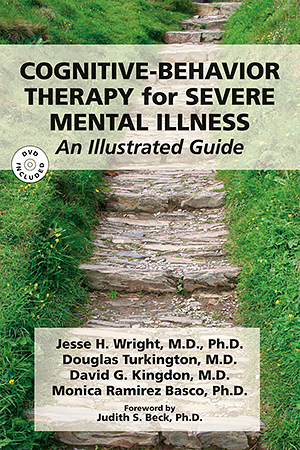Chapter 1.Introduction
Sections
Excerpt
The originator of cognitive-behavior therapy, Aaron Beck, described a case of successful psychotherapy for delusions in his first publication in psychiatry (Beck 1952). However, most of the early development of cognitive-behavior therapy (CBT) was devoted to methods for mild to moderate depression and anxiety disorders. In the late 1980s and 1990s, interest began to grow in treating more challenging conditions, such as schizophrenia, bipolar disorder, and severe or treatment-resistant depression. Specific CBT methods were detailed for many of the severe mental disorders (Basco and Rush 2005; Chadwick et al. 1996; Fava et al. 1997; Haddock and Slade 1996; Kingdon and Turkington 1994, 2002, 2005; McCullough 2000), treatment programs were developed for inpatients (Stuart et al. 1997; Wright et al. 1993), and outcome studies produced encouraging results (e.g., see DeRubeis et al. 1999; Fava et al. 1997; Lam et al. 2003; Sensky et al. 2000).
Access content
To read the fulltext, please use one of the options below to sign in or purchase access.- Personal login
- Institutional Login
- Sign in via OpenAthens
- Register for access
-
Please login/register if you wish to pair your device and check access availability.
Not a subscriber?
PsychiatryOnline subscription options offer access to the DSM-5 library, books, journals, CME, and patient resources. This all-in-one virtual library provides psychiatrists and mental health professionals with key resources for diagnosis, treatment, research, and professional development.
Need more help? PsychiatryOnline Customer Service may be reached by emailing [email protected] or by calling 800-368-5777 (in the U.S.) or 703-907-7322 (outside the U.S.).



